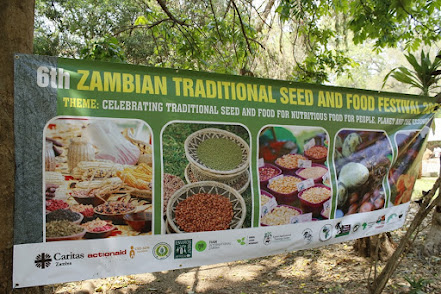TRADERS CONFIDENT MIDAS WILL IMPROVE THEIR BUSINESS OPERATION AT MWAMI-MCHINJI BORDER POST
“Some
years back, we used to avoid using the Mwami-Mchinji Border Post from either
Malawi or Zambia but rather cross the border informally by using Zalewa route
because of the long clearing process involved at the border,” Florida Lungu, a
Zambian based cross border trader recalled, saying this used to pose serious challenges
to her and her fellow cross border traders.
“Whenever we used the Zalewa route we could loss our goods because authorities from
Either Malawi or Zambia could pounce on us and confiscate them.”
Mrs.
Lungu who has been in this business for more than 3 decades further recollected
that “We could take about 9 to 10 hours just to be cleared at the border, this
was really a setback on our side and it is such barriers that made us ,avoid
formal routes.
Another
trader, Jane Zimba complained that due to high export and import duties, it is
usually difficult for her to realize profits and eventually expand her
business.
On
the other side of the border, the challenges affecting business operations of Malawian
Cross border Traders are not unusual from those faced by their counterparts on
the Zambian side.
Stella Phiri who deal in clothes and kitchen wear said because of high taxes which they
are subjected to they prefer to use informal route which she said is cheaper
than cross the Mwami-Mchinji border post.
Despite
“The African Development Bank estimating that Cross border to contribute to the
incomes of some 43 per cent of the African population,” prolonged and
cumbersome immigration processes, often done manually, increase the cost of
trade a development which indirectly hinder the growth of some cross border
traders.
The
World Bank confirms that “cross-border transactions remains expensive for small
traders between Zambia and Malawi, costing traders 62 percent more in border
costs than large formal traders.”
But
following the recent handing over of the Migration Information and Data
Analysis system to the Malawian government and its installation at the Mwami-Mchinji
Border Post, by the International Organization for Migration (IOM) Mrs.Lungu is
confident that crossing the border formally will no longer be a difficult
undertaking to small scale traders, a development she reiterated that will
increase formal trade in the region.
“Taking
long hours when crossing the border is among non tariff barriers that has of
late affected us traders and we hope it will now be a thing of the past,” she noted.
The
Migration Information and Data Analysis System (MIDAS) has been installed, with
financial support from European to allow small scale traders to more
effectively manage cross-border movements with border passes.
The
system which is a high-quality and affordable can collect, process
and record information for
the purpose of identification of travelers, data collection and analysis.
And
another Zambian based Cross Border Trade, named Aliness Banda is also hopeful
that the setting up of MIDAS at the border post will help improve their
business operation but wants the governments of Zambia and Malawi to reduce tax
duties in order to encourage more small cross border traders to cross the
border formally.
Meanwhile
Zambia Ministry of Home Affairs Permanent Secretary Chileshe Mulenga during the
installation of the (MIDAS) called on governments in the region to make the use
of illegal routes much more punitive so as to encourage cross borders to use
the regular routes.
He
noted that the use of illegal routes is a risk to the securities of the two
countries as well as the region thus the need to ensure that they are not
encouraged.
And
Common Market for Eastern and Southern Africa Assistant Secretary General
Finance and Administration Dr. Dev Haman also bemoaned the lack of systematic
data collection and management saying it affects the proper monitoring and
understanding of the phenomenon by governments, regional organisations and
cooperating partners.
Among
the objectives of MIDAS which aims at facilitating small scale cross
border trade flows between countries
through effective policy and governance reforms ,institution capacity building
,improved border infrastructure and
better date collection and monitoring.



Comments
Post a Comment